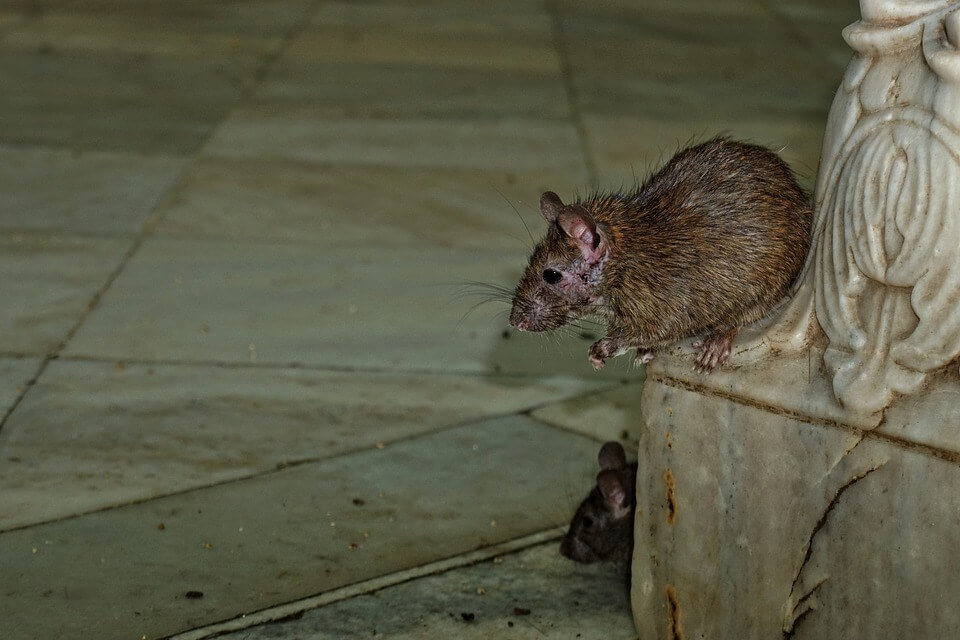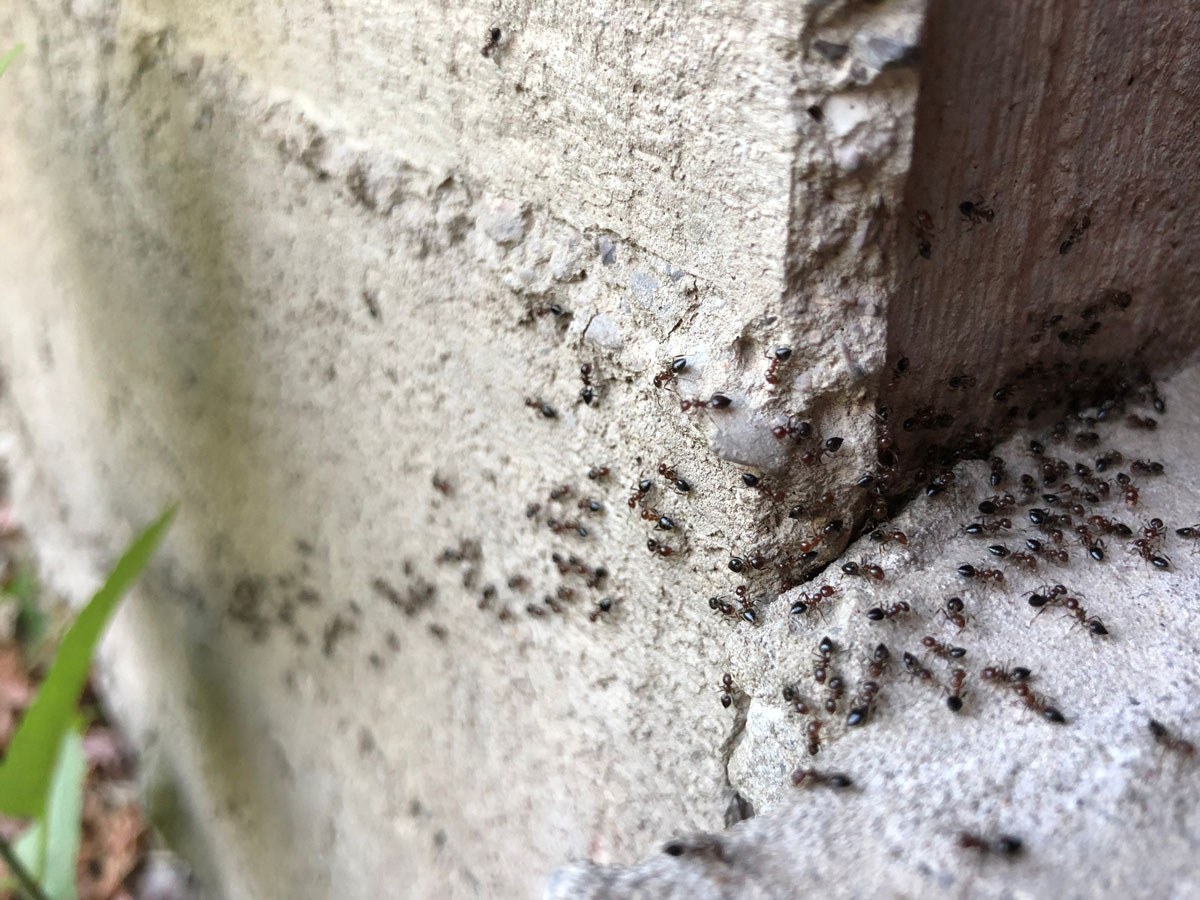Who is Responsible for Pest Control Services When Renting?
July 18, 2019

Who Is Responsible For Pest Control Services When Renting?
The quick answer is: it depends. A pest problem can occur in a property in hundreds of ways, which means there isn’t one single answer. It could be the private landlord, tenant, local council or housing association. Here are a few general guidelines to help you find your way forward.
When is a Landlord Responsible for Pest Control Services?
According to the Director of Operations at the National Landlords Association, Richard Price:
“It is the responsibility of landlords to keep a property free from pests as far as possible. Measures should be taken to prevent attracting pests and giving them easy access to the premises. Under the Prevention of Damage by Pests Act 1949, landlords could be served with a statutory notice to eradicate a pest problem if an infestation affects tenants or neighbours.”
Before tenants move in, landlords have to make sure living conditions comply with health and safety guidelines. If repair work is poor and causes a pest infestation (or makes it worse), they may need to pay costs if your local authority ends up tackling the problem.
Pest Proofing
Responsibility for pest proofing a property also belongs to landlords, housing associations and registered social landlords (RSLs). They have to specify – in a signed contractual agreement – that regular pest treatments will be carried out. Particularly if a property is in a highly populated area known for seasonal, returning pests.
If a landlord fails to treat a pest problem on their property, local authorities have the power to serve an enforcement notice. The notice comes with a deadline by which a pest infestation must be eradicated.
What if a landlord refuses to comply with an enforcement notice? If the council has to arrange pest extermination, the landlord will legally be forced to cover the cost of treatment and their admin charges.
Neighbours and Neighbourhoods
Private landlords have public health responsibilities. They can be liable if a pest problem at a landlord’s property puts the health or premises of neighbours at risk. Vermin not only spreads disease, but it could also cause damage to a neighbour’s property.
What if the tenant is causing a pest problem, for example, because unemptied bins are attracting rats? In the first instance, it’s the landlord’s responsibility to speak to the tenant to deal with the problem.
When is a Tenant Responsible for Pest Control Services?
If a pest infestation occurs because of tenant negligence or lifestyle, then they are solely responsible for resolving it. A tenant is generally responsible for dealing with a pest problem if:
- They fail to notify their landlord of a pest problem. They delay pest treatments organised by the landlord as per the terms of a tenancy agreement. Or they fail to make arrangements for pest extermination/proofing on time
- In each of these scenarios, pest problems could spread, endangering other residents and causing structural damage to the rented property, for which the tenant could be liable.
- They attract vermin in or around a property through negligence, like improper waste disposal. Incidents will be investigated by a Health Officer and if a tenant is liable, they will need to arrange pest control.
- It’s part of a tenancy agreement. If a landlord specifies that a tenant is solely responsible for pest control in a tenancy agreement, and a tenant agrees to those terms, pest control when renting is the contractual responsibility of the tenant.
Environmental Health Services
If you’re thinking of renting a property, make sure you check your tenancy agreement first. It will tell you if it’s your responsibility to call pest control services, if an infestation breaks out.
If the tenancy agreement doesn’t specify who is responsible for pest control, it needs to be determined if the pest problem started before or after the lease was signed.
This is hard to do, as some pest problems only become apparent as they develop. However, when a pest infestation does become clear, it’s the duty of the tenant to report it to the landlord. We’d recommend that you send photos or a video to your landlord as evidence.
If you’re a tenant and your landlord fails to act on a reported pest problem, you can contact your local authority. They’ll arrange a visit from an environmental health officer.
The officer will investigate the problem to determine who is responsible for dealing with it. If it’s the landlord, the council can issue an enforcement notice to force them to deal with an infestation of pests.
Pest Problems Caused by Disrepair
Poor maintenance is one of the main causes of rodent infestations, such as rats, mice and squirrels. Unless otherwise stated in a lease agreement, landlords are responsible for pest problems caused by repair work negligence, before a tenant moves in.
If you’re a potential tenant for a property, make sure you check the premises have been maintained to a high standard, before you sign any agreement.
Property handed over to a tenant in a high standard, following the signing of an agreement, means the tenant becomes responsible for the condition of the property from then on.
If repairs are needed during the tenancy as a result of pest damage, tenants must report them to the landlord as soon as possible.
Should a tenant not report pest damage as soon as it happens, the tenant could be responsible for dealing with the problem.
Isn’t the Local Council Responsible for Pest Control Services?
Short answer: not if you’re living in private rented accommodation. If you live in a council-owned property, your tenancy agreement will specify their pest control duties.
However, you can still report unresolved pest problems to your local council. Even if you’re a tenant of private landlords, housing associations or other registered social landlords (RSLs). For example, you can do this if your landlord refuses to deal with a pest infestation on their property.
We’d recommend that you start by trying to resolve the problem with your landlord, before getting the council involved.
If they refuse to budge, your local authority is duty-bound to investigate the cause of pest problems. As long as you’ve lawfully notified your landlord of the issue, of course.
Should your case meet the council’s requirements, it has the power to issue an enforcement notice to your landlord. However, beware, if pest control is the tenant’s responsibility, the council can also serve the tenant with an enforcement notice.
Local authorities will always work with both sides to try and get a pest problem sorted. An investigation will determine who is responsible and they will be forced to deal with the problem.
When is a Housing Association Responsible for Pest Control Services?
Housing associations often let out flats in apartment blocks with a mix of private and communal areas. This means it’s often unclear who is responsible for pest control.
Housing associations are usually responsible for pest control in communal areas, like stairways and boiler rooms. If a pest problem is as a result of poor repairs or negligence in these areas, again, the housing association is responsible.
Tenants are generally responsible for pest infestations in their own apartments, especially if it’s a result of tenant negligence. If in doubt, report your issue to housing authority officials to find out who is responsible for dealing with it.
Pest Control Services When Renting – Are There Other Options?
Aim Environmental Services can help. We treat most pest problems on the same day. Our highly qualified, professional, fast-acting technicians can treat a pest infestation as soon as you spot it.
If you’re a landlord, we offer contracts starting from as little as 45p per day, for peace of mind and pest control all-year-round. If pests appear, rest assured that you can call on professional help, immediately.
If you’re a tenant with a landlord refusing to tackle a pest problem, we’re the guys to call. Our rates are competitive when compared with local council fees. Plus we can get to you, treat and eradicate the problem on the same day in most cases, something that council services cannot offer.
Further advice is available from Citizens Advice.
For fast, effective pest treatment, call the Aim Team today on 01902 475175 or live chat with us on our website. And check out reviews from our satisfied customers on Checkatrade.com, Google and our Facebook page.


Contact Us Today same day call out available
Having rats, mice and squirrels in your property or place of work can be traumatising, not only for the effect on your health, but also the damage that can be caused to personal property, belongings or stock.









